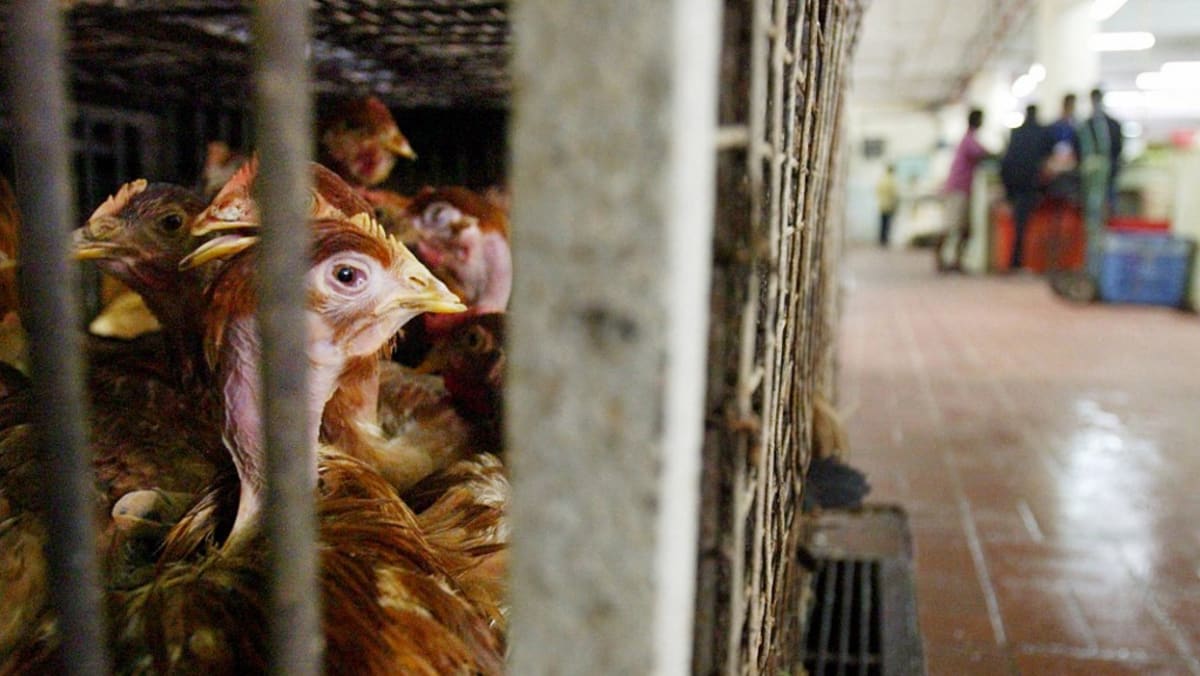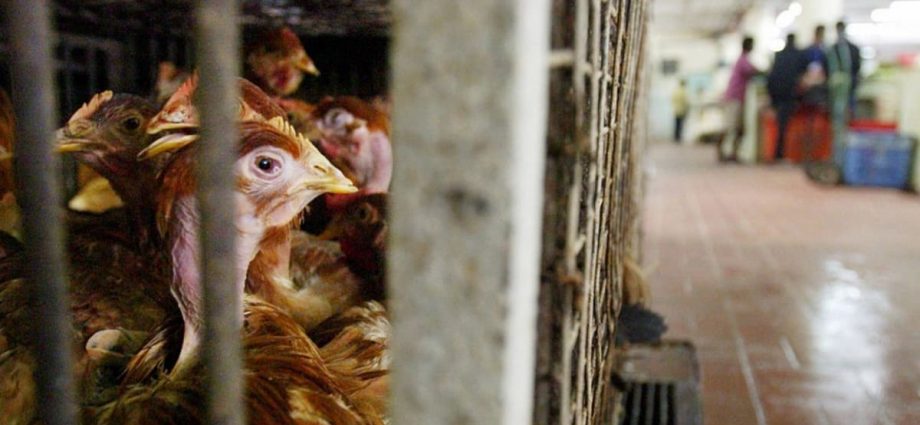
KUALA LUMPUR: Some farms in Malaysia rearing chicken specifically for export may resume exporting in October after getting approval from the Agriculture and Food Industries Ministry (MAFI), said the chairman of Malaysia’s task force against inflation Annuar Musa on Monday (Aug 29).
“This means the number of chickens to be taken out needs MAFI’s approval. It should not affect the output meant for consumption in the country.
“Only certain farms designated for producing chicken can start breeding now for export purposes. But they cannot reduce the existing output or import that has been allowed,” said Mr Annuar, who is also the Minister of Communications and Multimedia.
He said that the ceiling price of RM9.40 (US$2.10) per kg for local whole fresh chicken will not be raised after Aug 31.
The ceiling price for standard chicken has been RM9.40 per kg since Jul 1.
Mr Annuar said the latest Cabinet decision did not have an end date because the government would monitor the overall chicken output and export volume before making any decision.
It was reported that the Domestic Trade and Consumer Affairs Ministry secretary-general Azman Mohd Yusof said that the mechanism for implementing the RM9.40 ceiling price in Peninsular Malaysia might not be continued after Aug 31 as supply was getting more stable by the day.
“So, before the Cabinet makes a new decision, the one I announced today will continue to be in force after Aug 31,” Mr Annuar said.
The Malaysian government had earlier banned the export of up to 3.6 million chickens from Jun 1 in its efforts to tackle supply and pricing issues for chicken in the country.
The ban was implemented following complaints of supply shortage and price increases of chicken, with some traders selling their chickens above the price ceiling to cover their costs.
Malaysia’s ban was partially lifted in mid-June to allow poultry importers in Singapore to resume bringing in live kampung and black chickens.
Mr Annuar also said that the Cabinet had discussed breeders’ request for a resumption of exports but felt that priority should still be given to the domestic market, adding that a bit of an oversupply can help to bring down prices.
“When price drops, we cannot reduce supply. So export will not be allowed if it involves taking from the production for domestic consumption.
“For domestic use, imported chicken is allowed. Chicken produced directly from various farms should continue as such. We understand there is a demand from importing countries, and we have the capacity at certain farms in some states to export,” he added.
Annuar said the task force will closely monitor this mechanism to ensure that there is a sufficient supply of about 70 million chickens per month or 2.3 million chickens daily to meet domestic needs.

